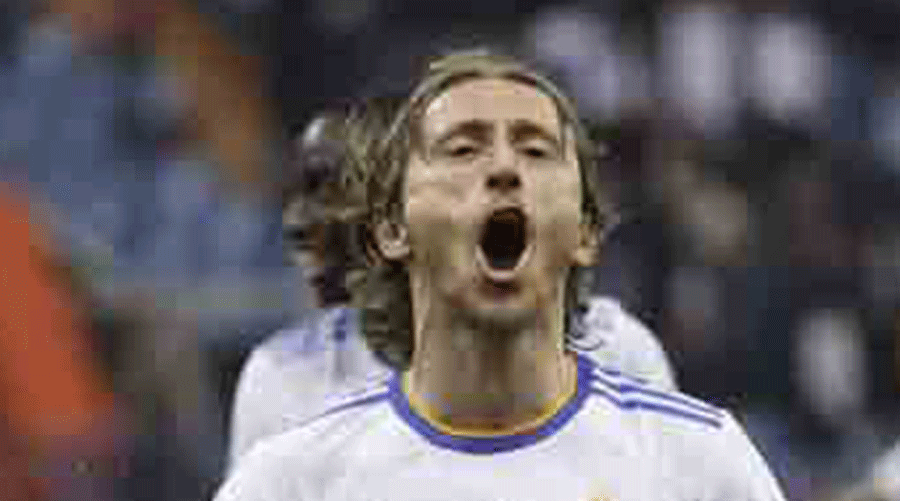Zlatko Dalic knew that something had to change. Dalic, the coach of Croatia, was just not sure, at that precise moment, exactly what it was. Brazil were starting to ratchet up the pressure, its bright yellow jerseys pouring forward in waves. His Croatia team was scrabbling to repel the attacks. His players, he could see, were barely hanging on.
His first instinct was that he needed new blood, fresh legs. In particular, his prized midfield — the timeless Luka Modric and his unflinching lieutenants, Marcelo Brozovic and Mateo Kovacic — seemed to have pushed itself beyond its limit.
In a break in play, Dalic summoned Modric, Croatia’s totemic captain, to the sideline. He was considering “replacing the midfield,” Dalic told him. What did he think? Modric, at the age of 37, gave the idea the shortest shrift imaginable.
Modric stayed on. He was there as Croatia held out for extra time. He was there as Bruno Petkovic scored a late equaliser to send the game to penalties. He was there to take, and score, the third spot-kick, the one that swept a country of fewer than four million people to the brink of a second successive World Cup semi-final.
That indefatigability, that refusal to countenance defeat, has become Croatia’s calling card. On their run to the World Cup final in 2018 and to a semi-final against Argentina here, Croatia played five knockout games. All five went to extra time. Four of them went to penalties. Croatia won them all.
“We know nobody likes to play against us,” defender Borna Sosa said as his teammates were still celebrating Friday’s victory against Brazil. “We have really good players and a really good mentality, and it is always really difficult to win against us. We are ready to go until the end.”
There are varying interpretations for the source of that indomitability. Both Modric and Dominik Livakovic, the goalkeeper, have linked it to the country’s relatively recent struggle for independence, a fresh trauma that a handful of players on the squad experienced firsthand.
“We have 18 new players,” Sosa, the defender, said of this year’s team. “Many of them are playing in the World Cup for the first time.”
Almost every young player in Croatia spends time early in their career at one of Croatia’s two great club teams, Dinamo Zagreb and Hajduk Split, meaning new arrivals to the senior squad are generally greeted by friendly faces. The country’s slogan for the tournament, “family,” is more than just a bit of marketing spiel.
There is no firm hierarchy among the team; even relative neophytes are encouraged to make their voices heard. Dalic, the coach, takes a deliberately low-key approach to discipline, trusting the likes of Modric and his fellow veterans to lead by example, to make clear to everyone just what is expected.
Those expectations are so high, Sosa said, that the team has adopted a policy of “not celebrating goals, just celebrating wins.” It is this, Boban said, that is the final ingredient in Croatia’s success.
New York Times News Service











